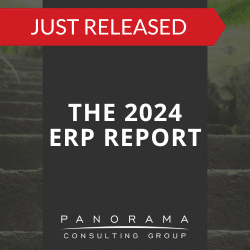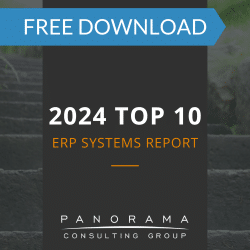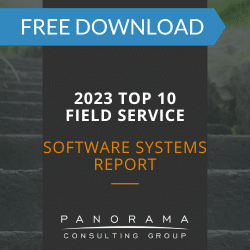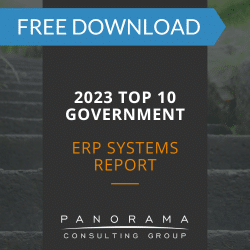Change is both an inevitable and essential force. It helps organizations grow, innovate, and adapt in an ever-evolving market landscape.
However, the continuous waves of change can sometimes lead to a phenomenon known as “organizational change fatigue.”
This fatigue arises when the frequency and complexity of change initiatives overwhelm employees, leading to reduced engagement and productivity.
Today, we’re outlining the strategies you can use to combat organizational change fatigue during an organization-wide initiative, such as an ERP implementation or digital transformation.
Understanding Organizational Change Fatigue
Organizational change fatigue manifests as exhaustion and cynicism among employees. This is the byproduct of poorly managed projects that fail to account for the human side of change.
Our Software Expert Witness team has seen many ERP failures related to poor organizational change management. Many organizations implement multiple change initiatives back-to-back without allowing employees sufficient time to adjust. At the same time, organizations tend to initiate changes without adequately communicating the benefits and expected outcomes to all stakeholders.
One thing is certain: Poor organizational change management breeds fatigue.
Change Management Case Study
The client recognized their need for more comprehensive change management, so they asked us to fill in the gaps. We developed a robust communication plan to supplement the vendor’s communication approach.
Strategic Approaches to Mitigate Change Fatigue
1. Early Identification and Intervention
Overcoming organizational change fatigue is only possible if you recognize the symptoms. These symptoms can be subtle or overt. Examples include:
- Increased absenteeism and turnover rates.
- Decline in quality of work and productivity.
- Visible resistance to new initiatives.
- Apathy or disengagement from organizational goals and activities.
- Growing cynicism or negativity among the workforce.
Recognizing these signs early and intervening promptly can prevent the spread of negativity. Intervention might mean regular check-ins with team members or forums for fatigued employees to express their concerns.
A manufacturing team, for instance, could be experiencing increased turnover because they didn’t properly communicate about their new supply chain management system. Conducting feedback sessions throughout the implementation process could pinpoint specific concerns and enable department leaders to address them.
2. Employee Participation and Ownership
Even if employees are excited about adopting one of the top enterprise resource planning systems, this enthusiasm may wane as the project proceeds without any request for their input.
When employees participate in the change process, the management team can gain insights into day-to-day pain points and potential solutions. This reduces change fatigue among employees by creating a positive work environment where innovative thinking is valued and rewarded.
Employee participation can take various forms:
- Participatory Decision-Making: Include employees in project activities, such as software requirements gathering. This fosters a sense of ownership and can unveil new insights about day-to-day operations.
- Feedback Loops: Encourage continuous input, and incorporate suggestions as necessary to ensure the project is aligned with the team’s needs.
Ultimately, organizations should create an environment where change is perceived as an opportunity for personal and professional growth.
Consider a large banking institution moving to a new customer relationship management (CRM) system. The bank could engage customer service representatives and account managers who interact with clients daily. By inviting these employees to participate in the design and testing phases of the new CRM system, the bank could ensure that the tool effectively addresses the challenges these employees face.
3. Effective Change Management Practices
Organizational change management (OCM) is a set of tools and techniques that help prepare employees for change. Our ERP implementation consultants ensure that OCM is incorporated into every project plan.
One of the most important aspects of change management is clear, consistent communication. This mitigates change fatigue by helping employees understand the ‘why’ behind the project.
How does the new ERP system align with the organization’s goals? What are the expected benefits of establishing a more data-driven culture?
Beyond communication, organizational change management involves building a network of support. This can take many forms, from mentoring programs to peer support groups.
By fostering an environment where help and advice are readily available, organizations can alleviate the feelings of isolation and confusion that often accompany change. This is crucial for overcoming change fatigue, as it transforms the narrative from one of endless struggle against change to one of collaborative evolution towards a shared goal.
A retail organization implementing a new inventory management system might build a team of change champions from various departments. These spokespeople could establish structured feedback mechanisms specific to each retail store. Then, employees could share their experiences with the new system, report issues, and suggest improvements.
Are Your Employees Ready for Another Project?
Change is exhausting for all levels of an organization. Minimizing this exhaustion requires clear communication, employee involvement, and a resilient organizational culture.
Contact our change management consultants to learn how to prevent change fatigue during your next software implementation.














